Dental Implants West Palm Beach
A Long-Term Way to Replace Missing Teeth
If you live in West Palm Beach or the surrounding areas and are looking to replace your missing teeth with dental implants, then you’ve come to the right place! We hope you find the information below helpful, and we encourage you to contact us with any questions you may have or to learn more about Dr. Mihran Asinmaz and his training and expertise. We can’t wait to help you rebuild your smile with dental implants in West Palm Beach!
Why Choose Palm Beach Dental Excellence for Dental Implants?
- Entire Dental Implant Process Completed In-House
- Member of the International Congress of Oral Implantologists
- Latest Dental Technology Used
What Are Dental Implants?
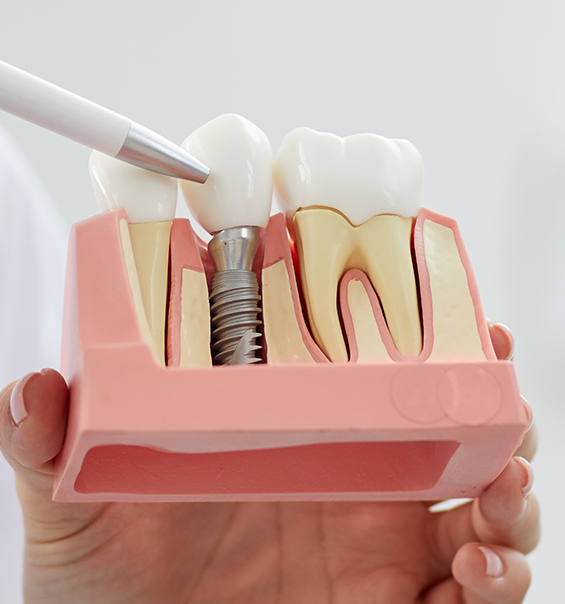
Dental implants are small titanium screw-shaped posts that are placed into the jaw to replace a single missing tooth or multiple missing teeth. A dental implant is traditionally made of three parts: the implant post, the connecting abutment (which attaches the prosthetic tooth to the implant post), and the dental crown that restores the implant post. For multiple missing teeth, dental implants can be placed at certain angles and locations to support a dental bridge or even a denture. Rest assured that dental implants are made of high-quality, biocompatible materials that can last for decades after placement.
The 4-Step Dental Implant Process

To get dental implants, you must undergo a process that spans several months. Still, the treatment’s long-term benefits are worth this time and effort. After all, our office does implant placement in-house. That means you won’t have to see an outside specialist. Instead, you can rely on Dr. Asinmaz – an active member of the International Congress of Oral Implantologists. He and his team will guide you through placement’s four stages: consultation, surgery, osseointegration, and delivery of the final restoration.
Initial Dental Implant Consultation

Of course, the first step to getting implants is a dental consultation. This visit lets Dr. Asinmaz learn your treatment goals, health history, and general background. In doing so, he can confirm whether implants will suit your needs.
Even if you don’t immediately qualify, Dr. Asinmaz and his team can still help. They’ll work with you to complete crucial preliminary procedures, whether it is gum disease therapy, tooth extractions, or bone grafting. You’d then be ready to receive implants.
Should our office approve treatment, we’ll explain the details of implant placement. In particular, we’ll walk you through the treatment timeline, cost, and more.
Dental Implant Surgery

As mentioned earlier, our practice does implant surgery in-house. This setup reduces treatment time and avoids the hassle of outside specialists. Plus, it ensures the treatment team can access your dental records instantly.
As our staff carries out the surgery, they’ll perform these four actions:
- Mouth Numbing – Before treatment even starts, Dr. Asinmaz and his team will numb your mouth. This process will prevent you from feeling pain during surgery. At most, you’ll only sense a slight pressure as staff operate.
- A Minor Incision – Once the treatment site is numb, we’ll make a small incision in your gums. The opening will create space for your new implant(s).
- Implant Placement – The acting surgeon will place your implant with the help of advanced methods and tools.
- Closure of Gums – After the implant is placed, our team will close the incision. They’ll then put a cap over the post.
Dental Implant Osseointegration & Abutment
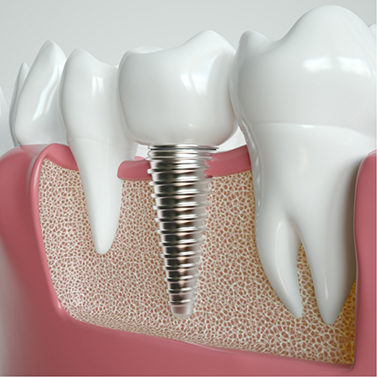
Following the surgery, your implant(s) will slowly fuse with your jawbone. Such fusion – also known as osseointegration – will take roughly 4-6 months and keep the restorations in place. During that time, you’ll need to be especially careful. A wrong move could lead your new teeth to fail early.
Once osseointegration is nearly over, you’ll require surgery to place abutments on the post(s). (These metal connectors will secure the tooth-looking part of your treatment.) As you heal from it, your final restorations will be crafted from previously made dental impressions.
Delivery of Dental Implant Restoration(s)

For the last step of implant treatment, you’ll visit our office for your final restoration. Based on the number of missing teeth, this prosthetic might be a crown, bridge, or denture.
Ultimately, fitting the final restoration is straightforward. All it takes is some simple cement work. From there, we’ll make adjustments so that your bite is comfy. You’ll then be good and ready to enjoy your newly rebuilt smile!
Benefits of Dental Implants

Because of the foundation that dental implants create within your jawbone, they can offer multiple benefits over alternative treatments, including:
Fully Self-Supporting Solution
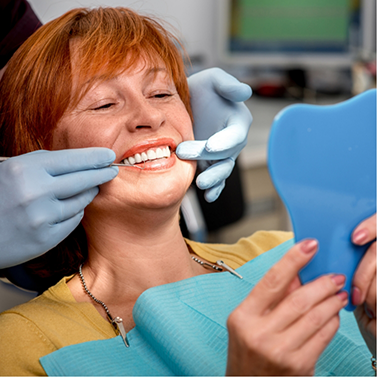
Traditional tooth replacement solutions rely on surrounding healthy teeth and oral structures for support. Over time, this can lead to additional tooth loss, diminished jawbone density, and loss of gum tissue volume, which causes changes to facial shape. Dental implants provide the necessary support for your replacement tooth or teeth just like natural tooth roots would, protecting your healthy dental structures and maintaining oral health.
Natural Function

Because the whole tooth is replaced (roots and crowns), your replacement tooth or teeth will look and function much more like your healthy smile. You can speak clearly, eat all your favorite foods, and smile with complete confidence in any situation. While dental bridges will function almost as well as your natural smile, for those who switch from a traditional denture to an implant denture, you will notice a significant difference. Most people only see a 10 to 20% return of chewing ability with traditional dentures, but implant dentures restore 70% or more.
Long-Lasting Results

Traditional dental crowns, bridges, and dentures need to be repaired, refitted, or replaced every five to ten years. An implant-supported prosthetic can stay in place and function for two decades or longer. In fact, many people can keep the same implant restoration for the rest of their lives.
Improved Oral Health

The tooth roots are essential because they anchor the tooth in place, but they also perform another vital function – they offer the necessary stimulus to maintain healthy jawbone density and gum tissue volume. When the tooth roots aren’t replaced, your bone and gum tissue will be resorbed. Over time, that can allow surrounding teeth to move out of alignment, and the loss of supportive structures may even lead to further tooth loss. Because dental implants replace the healthy tooth root structures, you maintain the stimulus to preserve healthy supportive tissue, leading to improved oral health.
Easy Oral Hygiene

Especially for denture wearers, dental implant-supported replacement teeth are significantly easier to clean. They can be brushed and flossed like healthy, natural teeth. You should also visit our office at least twice a year for dental exams and teeth cleanings to keep your dental implant-supported crown, bridge, or denture flawlessly functioning as long as possible.
Who Dental Implants Can Help

Dental implants can restore your smile’s former glory no matter how many teeth you’ve lost. This makes them one of the most versatile tooth replacement options out there today, especially for those who may be tired of using a denture day-to-day. We encourage you to learn more about who dental implants can help the most. You can do so by reading more below or giving our office a call directly to schedule a consultation!
Who Is a Good Candidate for Dental Implants?

A dental implant needs adequate jawbone quantity and quality to be placed successfully. X-rays and 3D-CT scans, as well as a clinical examination, will determine whether you have enough good bone to place an implant. If not, don't worry! With today’s bone grafting techniques, we can prepare an area that does not have enough healthy bone and turn it into one that can safely accommodate a dental implant.
Additionally, candidates should not have any existing dental problems that need treatment, including tooth decay or gum disease. Whether you are receiving dental implants, a different oral surgery, or even cosmetic dentistry, you will need to complete these necessary treatments first.
Missing One Tooth
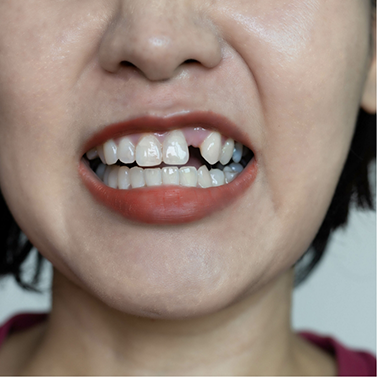
A single implant can be restored with a dental crown, and the missing tooth will look and feel as good as new. The materials we use to create your dedicated restoration are designed to look lifelike and blend in with your existing teeth, so no one but you and our office will know you had it placed.
Missing Multiple Teeth
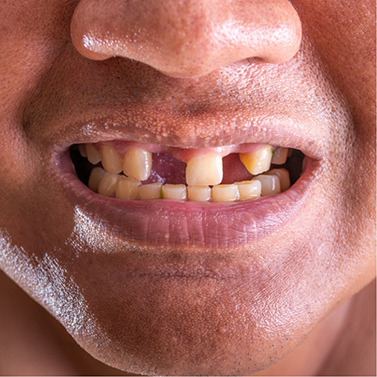
Depending upon the number of teeth that are missing, multiple implants can secure a fixed (non-removable) implant bridge. The bridge can replace several missing teeth in a row, even when using just a pair of dental implants to do so. That means you don’t necessarily need to have a dedicated dental implant for every tooth you intend to replace.
Missing All Teeth

Multiple implants can be used to secure a removable denture. The denture will “snap” into place, and this will provide extra retention. It’ll be nice to know that your implant denture will always be secure whenever you are eating and speaking! Of course, you can also opt to have the denture fixed in place (or non-removable) if you’d prefer to make at-home maintenance a bit easier.
Learn More About Implant Dentures
We also offer Teeth-in-a-Day, which may be ideal for patients whose jawbone may be too thin or brittle to support traditional implant dentures. It only uses four strategically placed posts to hold an entire full denture in place. Two posts are located at the front of the jaw where the bone is naturally thicker, and two more are located toward the back at an angle to help them provide maximum support. The denture simply fits on top of these posts, and in most cases, the implants and the denture can be placed in just one visit.
Learn More About Teeth-in-a-Day
Understanding the Cost of Dental Implants

Are you worried that your dental implants will not be a worthy investment? We understand that our patients must always consider cost before making any decision about potential dental work, but we can assure you that the benefits and results far outweigh the cost. Take a few moments to learn more about what factors contribute to the overall cost of dental implants in West Palm Beach and why this tooth replacement solution is a worthwhile investment.
What Factors Determine the Cost of Dental Implants?
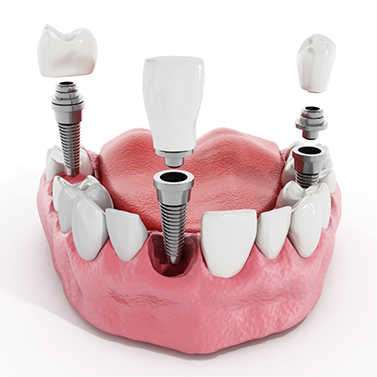
During your initial consultation with Dr. Asinmaz, you can expect to not only learn more about the dental implant procedure, but you’ll also receive an individualized treatment plan, complete with all the factors that impact the cost of your procedure. Some of these factors include:
- Pre-Implant Dental Work: Since dental implants are most beneficial in patients who have a solid, strong bone structure, those who do not will be required to undergo a bone graft or sinus lift, whichever is necessary, to have successful implant placement. If your bone is strong but your oral health is not, you may need gum disease therapy before receiving your dental implants.
- Number of Implants: One of the great things about dental implants is that they can replace one, multiple, or all of your teeth. Your dentist in West Palm Beach will determine during your consultation how many implant posts you’ll need, which will play a large role in how much you can expect your procedure to cost.
- The Kind of Materials Used: No dentist's office is the same, which means that you’re likely to find different dentists using different types of materials when placing implants. From the material posts are made from to the material used to make the customized prosthetics, it is all factored into the price.
- Sedation or Anesthesia: Depending on your individual needs, your dentist may only suggest sedation to keep you comfortable. However, because patient comfort is of the utmost importance, if local anesthesia is necessary, expect this to also be an additional cost. Fortunately, many insurances cover a portion of sedation or anesthesia.
- Customized Crowns – Not only will you need to pay for the implant posts, but you’ll also be responsible for the custom restoration on top.
Are Dental Implants Worth the Investment?

While the quick and easy answer is “yes,” it’s up to you to determine if the factors listed above are enough to warrant dental implant placement. Without a doubt, dental implants are the superior method of replacing missing teeth. They offer a wide array of benefits that cannot be found with any other type of tooth replacement. Some of these include:
- They’re long-lasting – With proper care and maintenance, they can last decades or even a lifetime.
- They offer greater stability – Unlike dentures that only sit on the top of your gums, dental implants are surgically placed into the jawbone, preventing your pearly whites from falling out or slipping.
- They’re low maintenance – Forget special tools and products to clean your dental implants. All you need is your toothbrush, toothpaste, mouthwash, and a calendar reminder for your six-month checkups to keep your implants clean.
- Not only do they look natural, but they feel natural, too – When preparing to craft your custom crowns, they’ll be matched to your tooth’s natural size, shape, and color to give you a beautifully blended smile.
Bone Grafting for Dental Implants
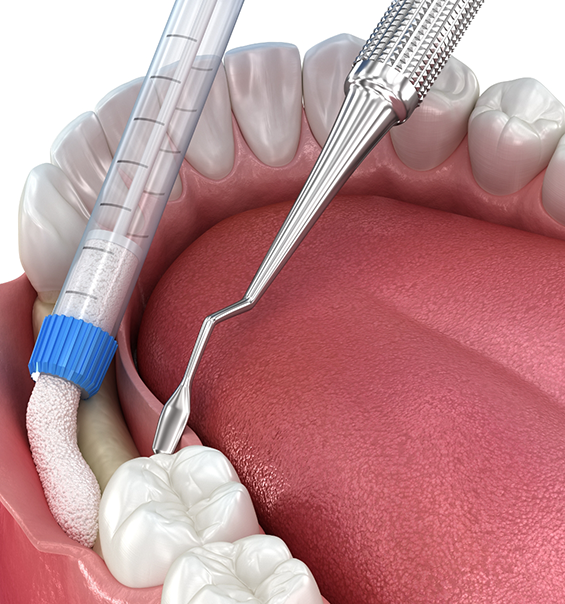
To replace missing teeth with dental implants, a patient needs to have an adequate amount of healthy jawbone. If the jaw isn’t strong enough as is, we can use a bone graft to fortify it so that implants can be safely and securely placed. Unlike most local dental offices, we won’t need to send you to a specialist to perform this procedure – as Dr. Asinmaz’s training allows him to make the process of rebuilding your smile as smooth and simple as possible.
Dental Implants Post-Op Instructions

Since we place dental implants in-house, we also take responsibility for making sure that your mouth recovers successfully after the procedure. Our team at Palm Beach Dental Excellence will give you a series of post-op instructions to follow for the next few days after implant surgery; following these steps will keep your discomfort under control and ensure that your mouth heals properly so that osseointegration can take place. Below is a brief outline of what your post-op instructions will normally look like.
What to Do Directly After Dental Implant Surgery

You’ll need to plan on spending the rest of the day at home once the surgery is complete. As your mouth starts to heal, a blood clot will form at the surgery site. You need to protect this clot to keep your mouth safe during the healing process. Drinking from straws, spitting, smoking, and touching the surgery site directly are all behaviors that can dislodge your blood clot and cause a dry socket; thus, you should avoid them completely until your mouth has sufficiently healed. If you feel the urge to spit, either swallow your saliva or use a tissue.
Common Side Effects

It’s normal to see some bleeding immediately after the surgery; you can stop it by putting pressure on the area with a piece of gauze. Swelling and general discomfort may last for a while, but they’ll get better over time. You can stay comfortable by using prescription or over-the-counter medication, and you can place a cold compress on your cheek for 10-minute intervals. It is not normal for these side effects to grow worse over time, so contact us immediately if there’s a problem.
Diet

You should stock up on soft foods that you can easily enjoy while you’re recovering from implant surgery. Mashed potatoes, scrambled eggs, pasta, and yogurt are all healthy options. You can also have soup, provided it’s not too hot. It won’t be too long before you can return to your normal diet; after your discomfort has faded, you can try eating more solid foods. However, the implant itself shouldn’t be used for chewing until it has been restored, so try to keep your food on the other side of your mouth.
Health & Oral Hygiene

You can brush your teeth normally the day after your surgery, but you need to be very gentle around the implant site to avoid disturbing the post or dislodging the blood clot. Rinse with salt water two to three times every day or use mouth rinse if it has been prescribed to you; this will cut down the presence of bacteria in your mouth and make it less likely that an infection will occur. Do not use alcohol-based mouthwash, as it could complicate the healing process.
What to Do After Your New Teeth Are Attached

After the final prosthetic is attached to your dental implants, some minor sensitivity might occur, but you can manage it with pain medication. Otherwise, your new smile should be ready to go. Call us immediately if there are any unusual symptoms like swelling and bleeding; these side effects shouldn’t be happening at this stage.
Maintaining & Caring for Your Dental Implants

Knowing how to maintain your dental implants is the key to ensuring they remain firmly in place for a lifetime. When meeting with Dr. Mihran Asinmaz, he will make sure you are equipped with the correct information so that you can practice proper dental implant care in West Palm Beach year-round. Not only does it require a commitment to better oral hygiene, but wearing these permanent prosthetics also includes eating healthy foods, breaking bad habits, protecting your smile, and continuing to see your dentist regularly. By doing all these things, you can enjoy greater confidence with a smile that will carry you for the rest of your life.
Making Oral Hygiene a Priority

Once your dental implants are in place, it will be imperative that you maintain good oral hygiene. Tooth decay and gum disease can lead to issues that negatively impact your soft oral tissues and bone, which can ultimately cause your implants to fail. You can avoid this by brushing twice a day for two minutes, flossing at least once, and rinsing with an ADA-approved mouthwash. This will help to eliminate bacteria and keep your smile looking and feeling its best.
Eating a Healthy Diet

Eating a slice of pie or a cookie now and then is not a problem. However, if you are incorporating these foods into your daily diet, you’ll have a serious problem much sooner than you think. Too much sugar and starch can lead to the development of bacteria that spread onto your teeth and gums, resulting in cavities and periodontal disease. But by choosing to adopt a healthier lifestyle and eating lean proteins, leafy greens, fruits, and vegetables, you can not only take better care of your body but also your smile. Yes, your dental implants in West Palm Beach will allow you to eat all your favorite foods, just be sure that the majority of your diet consists of those foods that will positively impact your oral health.
Breaking Bad Habits

Do you smoke? Are you prone to biting your nails when you’re bored or nervous? Do you like to eat ice or find yourself chewing on pens or pencils during the day? You’re not alone. Unfortunately, when you have dental implants, these bad habits can damage your prosthetics and cause them to fail. This is why it’s important to stop practicing these habits long before you ever have your dental implants surgically put into place. It may not be easy, but it will be well worth it once you see just how beautiful your smile can be.
Protecting Your Dental Implants
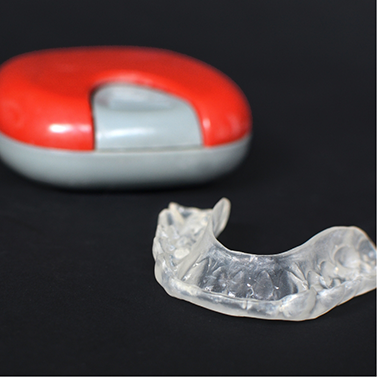
A customized mouthguard is a great way to protect your smile from a spiked volleyball or fly ball. It’s also helpful to minimize the breakdown of enamel over time because of teeth grinding (bruxism). Whether you want to safeguard your teeth and gums while playing your favorite sport or you prefer to reduce the amount of wear and tear to your tooth enamel at night, these oral devices are ideal solutions. Because of their durability and the materials used to create them, they can keep your natural and artificial teeth safe from potential harm whether it is on the court or while asleep in bed.
Scheduling Regular Dental Checkups

In addition to all the previously mentioned tips for maintaining and caring for your dental implants, you’ll also want to make sure you’re seeing your implant dentist in West Palm Beach regularly. It is recommended that you have dental checkups and cleanings every six months to minimize the potential for gum disease, tooth decay, oral cancer, and bad breath. By keeping to this schedule, you will continue to take better care of your smile and reduce your risk of developing some of the most common oral health problems.
Dental Implant FAQs
Why Are Dental Implants So Successful?
Dental implants have come to be the most successful and reliable form of tooth replacement due to the materials and technology used. The implant post is made from titanium, a biocompatible material that is not just strong but also easily accepted by the body.
To ensure the correct placement of the posts for their long-term success, imaging equipment is used to evaluate the density of the jawbone. This helps to ensure that the jawbone can support the post while also helping to place it in the right location to reduce the risk of late-term dental implant failure.
Am I Too Young to Get Dental Implants?
One of the reasons we don’t recommend dental implants for very young patients is because most of the time, the jaw has not finished developing until young adulthood. If we were to place dental implants before the jaw was finished growing, it may interfere with bone development and cause complications. Most implant dentists will not place implants in those under the age of 18. Of course, there are some situations where the jaw does not finish growing until your mid-20s. During your consultation, we’ll perform a series of detailed X-rays to better understand your eligibility to complete treatment.
Do Dental Implants Decay?
The components that make up dental implants, including the post and the restoration that goes on top, cannot develop cavities. This is because they are made from inorganic materials like titanium and porcelain. However, your gum tissue can still become infected, causing the implant to fail. Neighboring teeth can still develop cavities as well. For these reasons, you’ll need to stay on top of your oral hygiene, even if you have dental implants. This remains the case even if you intend on replacing all your teeth with an implant denture.
Can I Get Dental Implants If I Smoke?
While it is possible to receive dental implants if you smoke, implant dentists will tell you to quit using tobacco before (minimum two weeks, ideally longer) and after beginning treatment. This is because smokers carry a much higher risk of experiencing implant failure. Smoking (as well as chewing tobacco and vaping) causes dry mouth, slows down your body’s healing abilities, and can even negatively affect the implant’s ability to fuse with the jawbone. If you smoke, you can also increase your risk for dry socket, which is the dislodging of the blood clot that covers the implant site. Our office strongly recommends that you quit the use of tobacco entirely to ensure the longevity of your tooth replacement.
